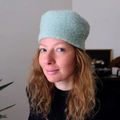ADNAS unveils DNA authentication for cotton species
This is a significant milestone in cotton quantitation using an enhanced DNA authentication technology for fiberTyping cotton textiles. This technology applies to premium extra long staple (ELS) cottons that have been blended with shorter staple cotton, and labeled as 100 per cent Pima, or 100 per cent Egyptian ELS.
“Consumers unknowingly could buy a mislabeled product,” said Michael E Hogan, vice president of life sciences at ADNAS. “They could be purchasing a sheet that says it is ’100 per cent Egyptian ELS’ that is actually not 100 per cent ELS, but, instead, made from yarn containing 30 per cent ELS, and 70 per cent upland cotton. Our technology provides a method for clearly distinguishing the type of blending, especially in extra long staple cotton products.”
During the past eight years, ADNAS' team of international molecular biologists, forensic scientists, quality control and assurance and technical advisors developed the scientific and commercial foundation for validating DNA tests for cotton. This was a significant investment including intellectual property, research, development, technical validation and forensic expertise.
Historically, the goal of select processors of premium cotton fibers (Egyptian ELS or American Pima) was to buy the highest quality cotton at the lowest price, attempting to meet product specifications by blending bales with different fiber qualities and types. Blending of premium extra long staple cotton with shorter staple non-ELS upland cotton occurs when brands search for higher profit margins and there is a lack of available high quality extra long staple fiber. This blending of different fiber types results in impure products being labeled and sold as 100 per cent ELS cotton, violating US and international laws.
“It has been reported that ELS cotton grown in Egypt is experiencing difficulties due to mixing of pure Egyptian ELS cotton seeds with poorer quality seeds,” noted Hogan. “At recent global industry meetings, discussions were held on the standards for Egyptian cotton and the alleged fraudulent practices taking place now. Our fiberTyping testing enables proper diagnosis of these widely blended, counterfeited textiles.”
































-Ltd..jpg?tr=w-120,h-60,c-at_max,cm-pad_resize,bg-ffffff)





.jpg?tr=w-120,h-60,c-at_max,cm-pad_resize,bg-ffffff)
.jpg?tr=w-120,h-60,c-at_max,cm-pad_resize,bg-ffffff)






